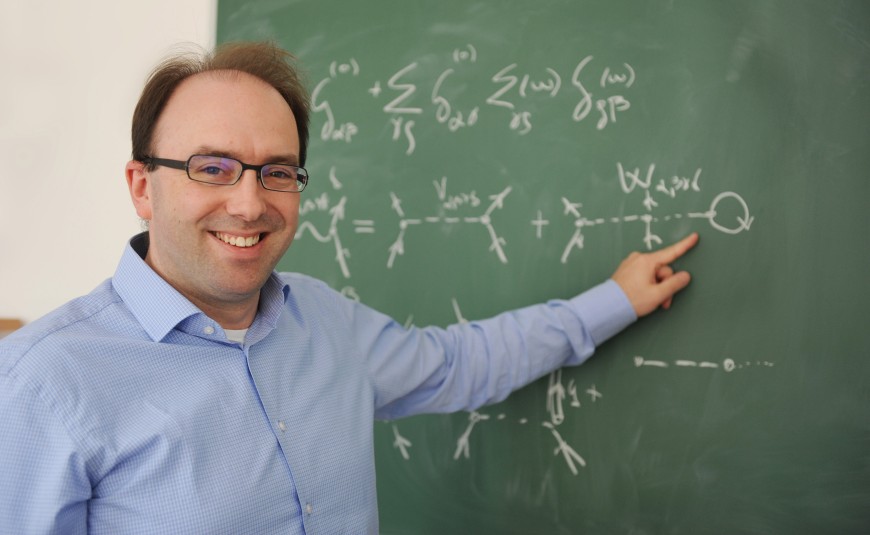Max Planck Fellow in Nuclear Physics
Achim Schwenk another five years Max Planck Fellow at MPIK
2020/09/14
The President of the Max Planck Society has appointed Prof. Achim Schwenk, Institute for Nuclear Physics of TU Darmstadt, as Max Planck Fellow at the MPI for Nuclear Physics in Heidelberg for another five years. This is connected with leading the theoretical research group “Strong Interactions and Exotic Nuclei”, in close collaboration with the experimental division of Prof. Klaus Blaum.

Theoretical nuclear physics is in an exciting era with new advances in the theory of nuclear forces and ab initio methods, as well as their impact on the structure of strongly interacting matter both in nuclei and in astrophysics. This is also driven by new research facilities for the discovery of extremely neutron-rich nuclei and by astrophysical observations of neutron stars with LIGO/Virgo and NICER. In addition, the strong interaction in nuclei plays an essential role for the direct detection of dark matter.
Achim Schwenk has made outstanding contributions to these areas that have opened up new directions in the description of strongly interacting matter in the laboratory and the cosmos, and for the understanding of fundamental interactions with nuclei. Among these are ab initio calculations of exotic nuclei and the comparison with precision measurements at ISOLDE/CERN by Klaus Blaum and the ISOLTRAP and COLLAPS collaborations, as well as a systematic description of the interaction of dark-matter particles with atomic nuclei.
Achim Schwenk studied physics in Heidelberg before receiving a Fulbright Fellowship to go to the State University of New York at Stony Brook, where he obtained his Ph.D. with Gerald Brown in 2002. His research focuses on strongly interacting many-body systems in nuclear physics and nuclear astrophysics. Since 2009, he is a W3 professor at the TU Darmstadt and at the ExtreMe Matter Institute EMMI. Before he led the Theory Group at TRIUMF, Canada’s National Laboratory for Particle and Nuclear Physics in Vancouver. He is the spokesperson of the DFG Sonderforschungsbereich 1245 „Atomkerne: Von fundamentalen Wechselwirkungen zu Struktur und Sternen“, a Fellow of the American Physical Society, and was awarded an ERC Starting Grant, the ARCHES-Prize of the BMBF and the Zdzislaw-Szymanski-Prize.
Max Planck Fellows
The program “Max Planck Fellows” was initiated in order to strengthen the ties between university professors and researchers at Max Planck Institutes. The appointment as Max Planck Fellow is limited to five years but can be extended for another five years. Max Planck Fellows head a small research group at a Max Planck Institute.
TU Darmstadt / MPIK
